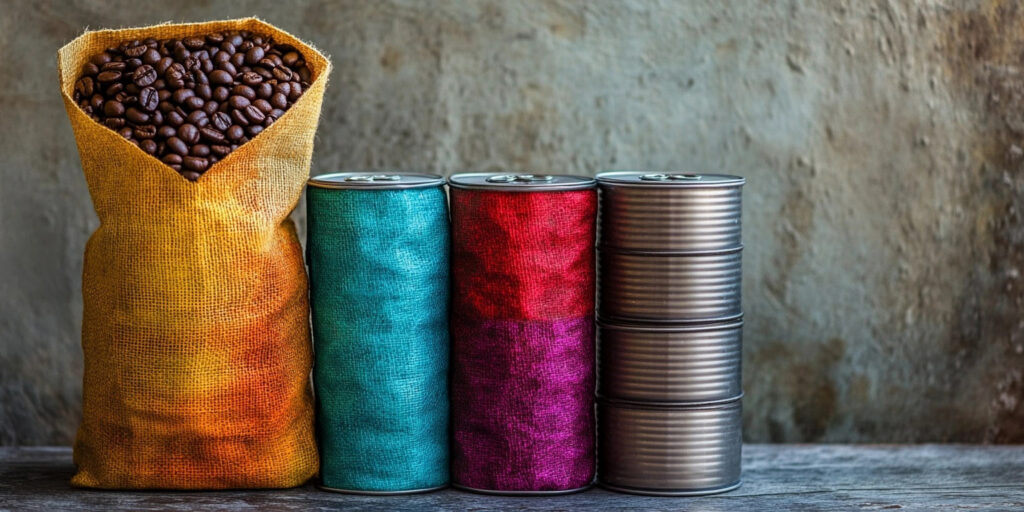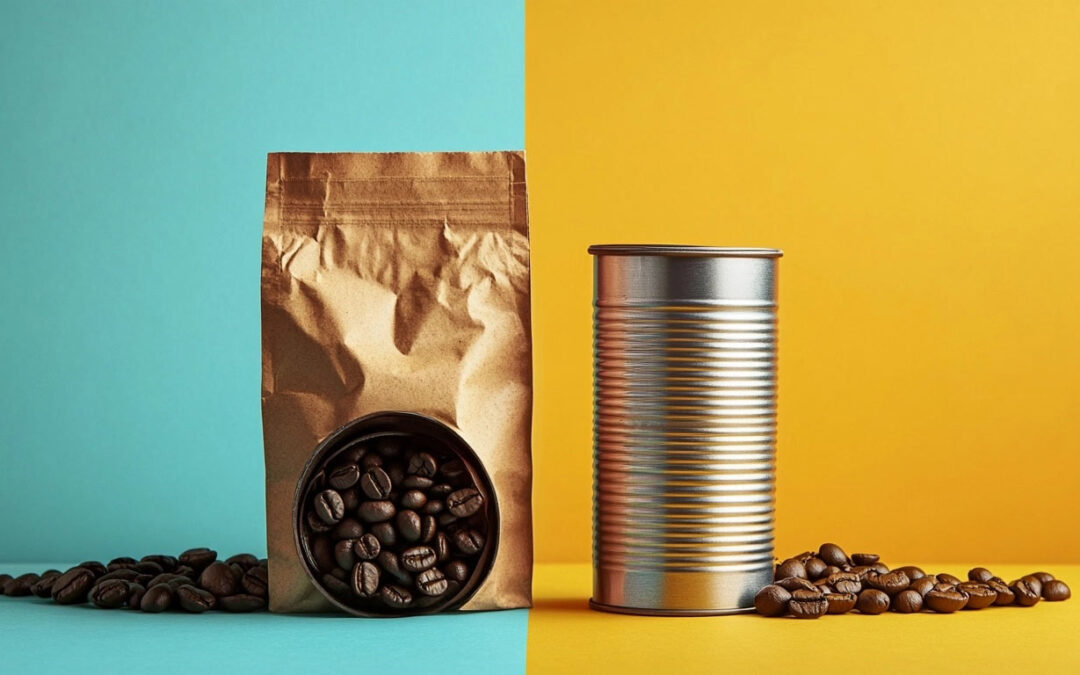Does one method preserve freshness better? Does one offer a richer taste? In this article, we’ll explore the key differences between bagged and canned coffee, potential health risks, and why they taste so different.
Are There Any Health Risks with Canned Coffee Beans?
While canned coffee may seem like a convenient option, some concerns have been raised about the materials used in packaging. Here are some key points to consider:
- Potential BPA Exposure – Many cans are lined with materials that contain BPA (Bisphenol A), a chemical that has been linked to health risks when ingested in large amounts.
- Oxidation and Staleness – Coffee beans can absorb flavors from their environment, and metal cans might not provide an airtight seal, leading to oxidation. This could impact both taste and potential freshness.
- Preservatives in Pre-Ground Coffee – Some canned coffee products contain preservatives or additives to extend shelf life, which may alter the coffee’s natural composition.
Bagged coffee, on the other hand, typically comes in specialized packaging designed to reduce exposure to air, which helps maintain quality and safety.
Which One Keeps Better Flavor?
When it comes to taste, freshness plays a huge role. Coffee beans start losing their flavor shortly after roasting, and how they’re stored makes all the difference.
- Bagged Coffee Benefits – Many premium coffee brands use vacuum-sealed or nitrogen-flushed bags that keep coffee fresh by removing excess oxygen. These bags also often include one-way valves that allow gases to escape without letting air in.
- Canned Coffee Concerns – While cans provide a sturdy, long-lasting container, they don’t always offer the best protection against moisture and air. Once opened, canned coffee is more likely to go stale quickly, impacting the overall taste.
- Whole Bean vs. Pre-Ground – Bagged coffee is more commonly available in whole bean form, which retains its flavors longer than pre-ground coffee typically found in cans.
If you’re looking for a consistently bold, fresh taste, bagged coffee is generally the better choice.
Why Does Canned Coffee Taste Different?
Have you ever noticed that canned coffee has a slightly different taste compared to fresh beans? There’s a scientific reason behind that.
- Aging and Oxidation – Since canned coffee often sits on store shelves for long periods, the beans or grounds may have already started losing their original aroma and depth of flavor.
- Metallic Taste Transfer – While modern cans are coated to prevent direct contact between the coffee and the metal, prolonged storage can sometimes lead to subtle taste alterations.
- Mass Production Impact – Many canned coffee brands use large-scale roasting processes that might not emphasize small-batch quality, leading to a less refined taste.
In contrast, bagged coffee—especially from specialty roasters—tends to be roasted in smaller batches and packaged with greater care, preserving its natural richness.

Final Verdict: Bagged or Canned?
If convenience is your top priority, canned coffee might be an easy grab-and-go option. However, if you’re serious about flavor, freshness, and quality, bagged coffee is the clear winner. With better protection against oxygen exposure and typically higher-quality beans, bagged coffee provides a richer, fresher taste experience.
So, the next time you’re in the coffee aisle, consider what matters most to you—flavor or convenience? If you want the best-tasting cup, it’s time to ditch the can and go for the bag.

